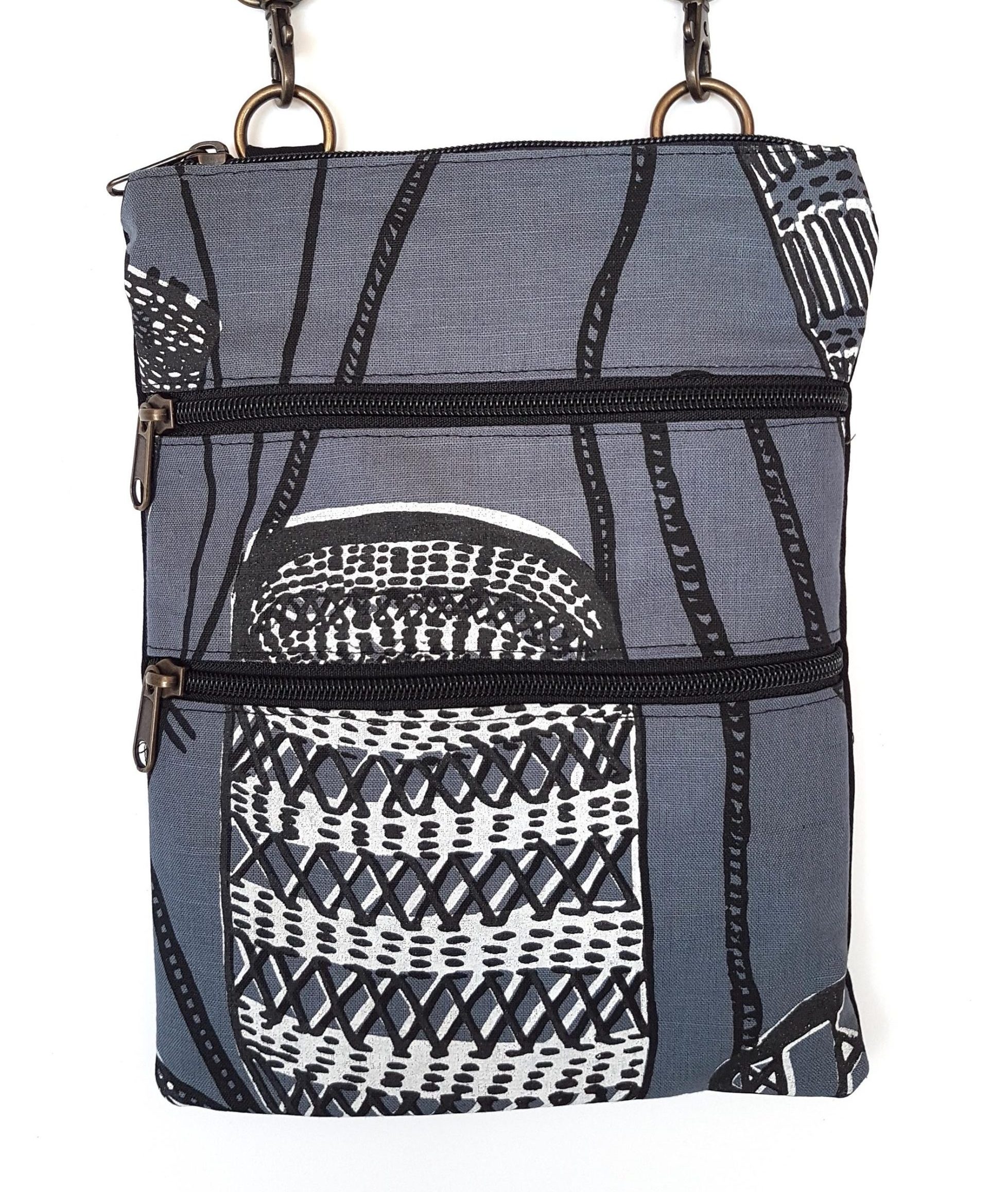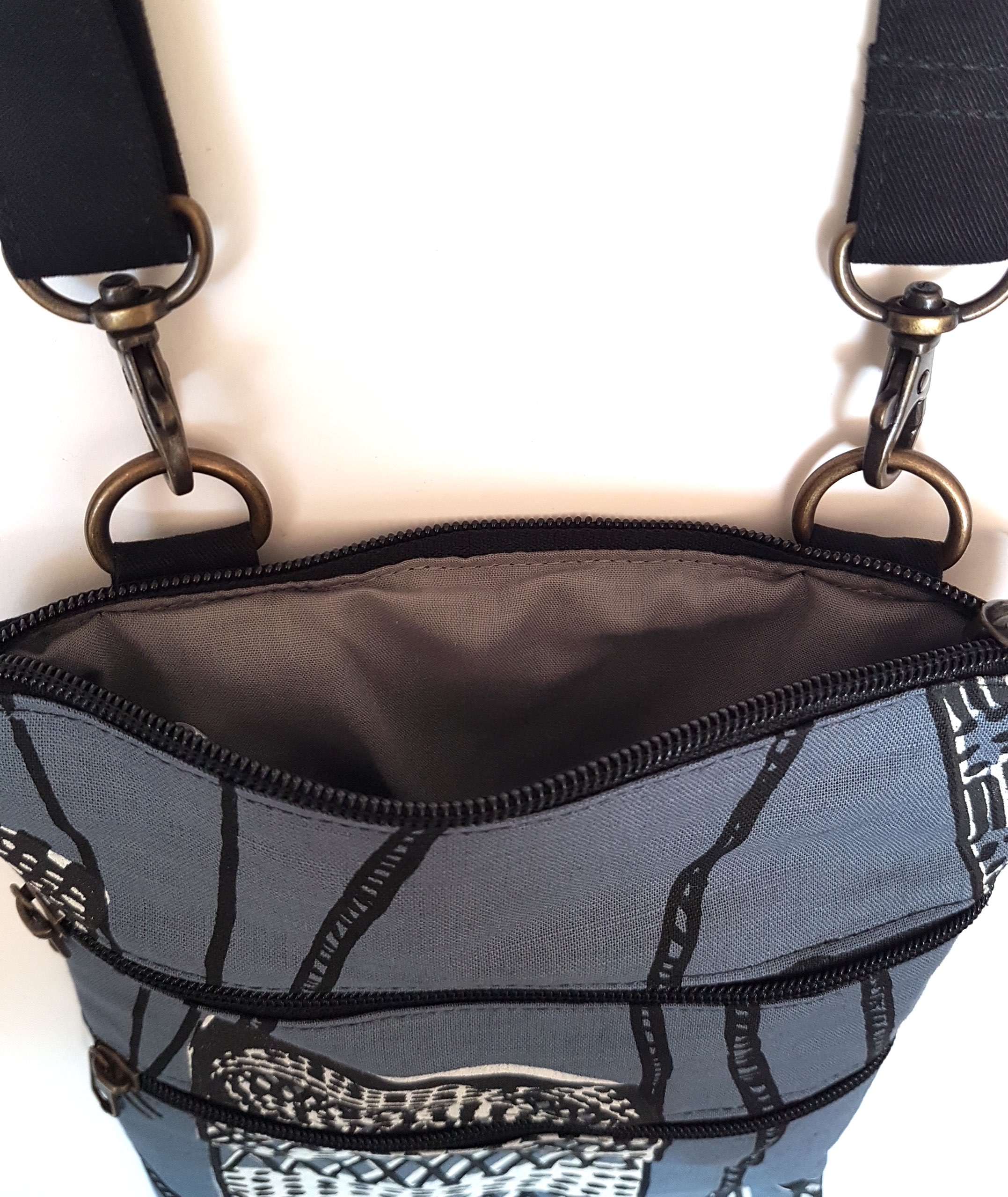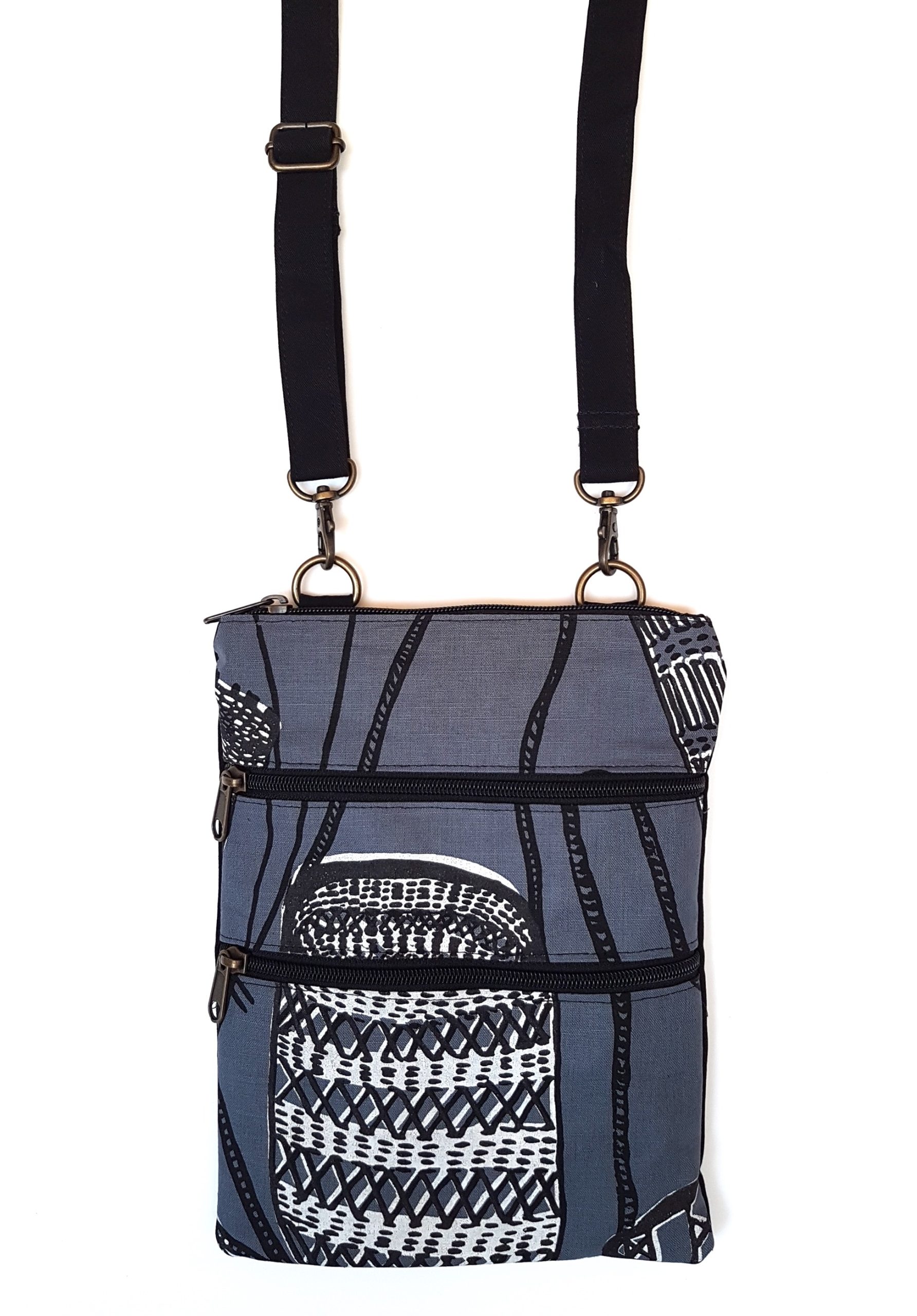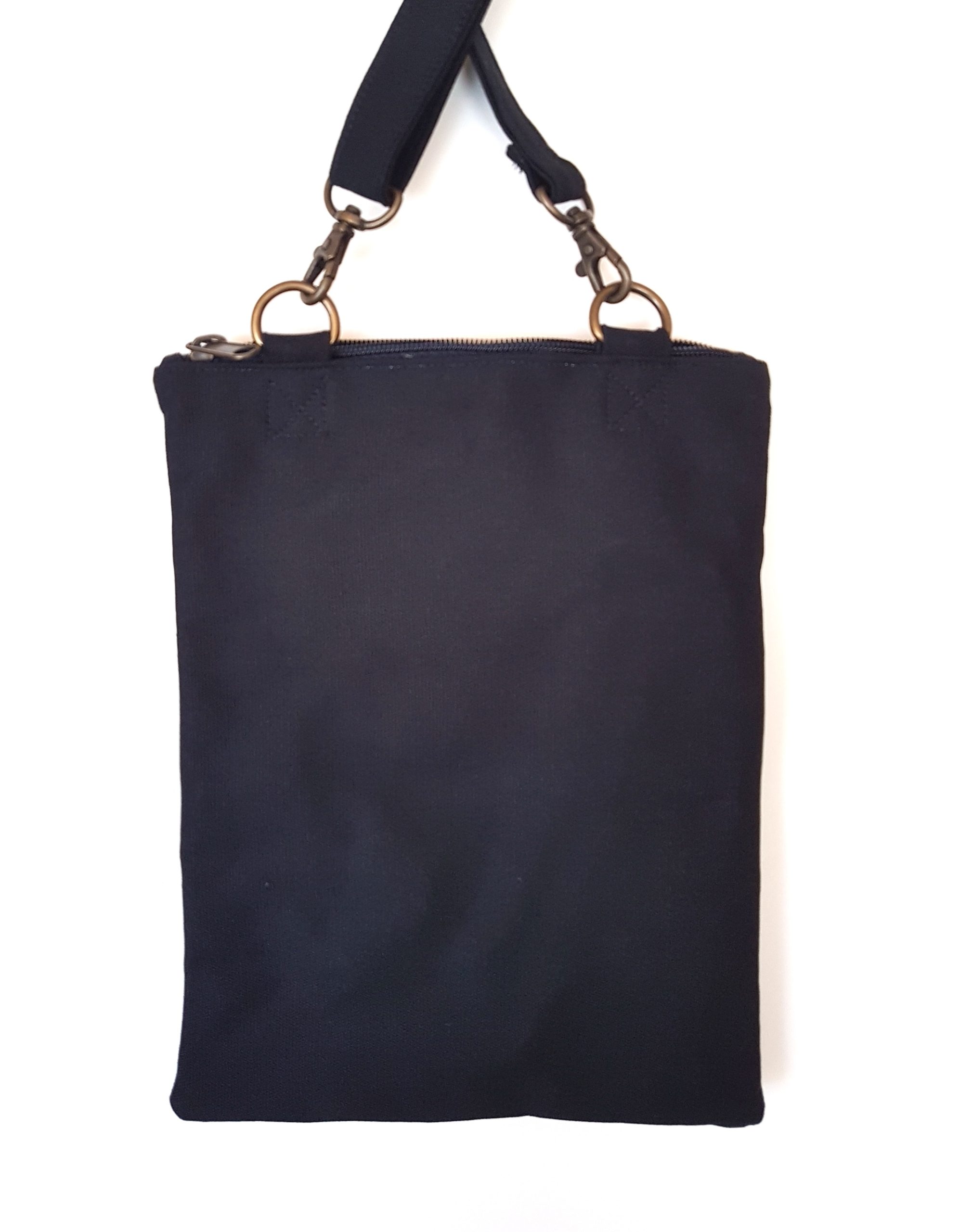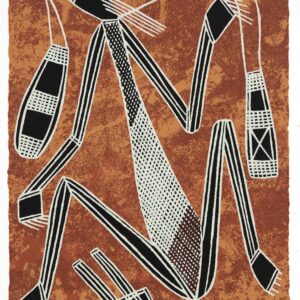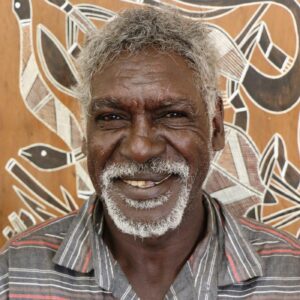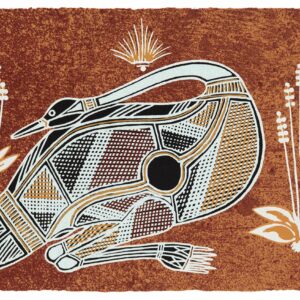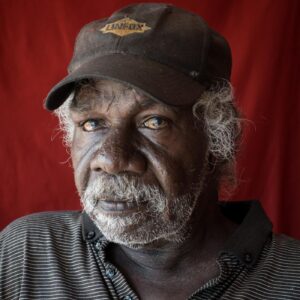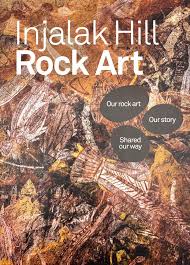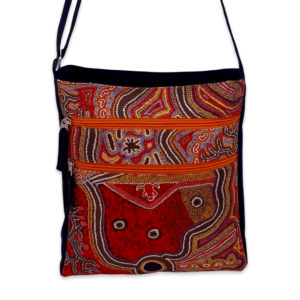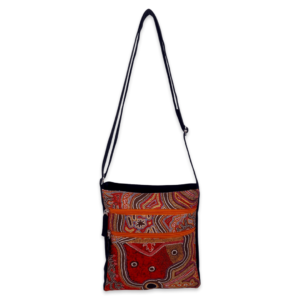Description
The internal compartment is quite spacious and fully lined. Externally there are two more pockets secured with zips. Each one goes to the full depth of the bag. Adjustable shoulder strap that is sewn securely to the body of the bag so very strong. Fittings are brass and durable.
Dimensions:
H: 25 cm (10 inch)
W: 19 cm (7.5 inch)
Fabric: Cotton. Lining and matching fabric is cotton.
Color: As shown on straps, reverse of bag is black. Lining is grey (as shown)
Fabric Design: Gundjabarrk (Dilly Bags), hand printed from Injalak Arts in Gunbalanya, NT.
The designers:
This collaborative design was created by four Kunwinkjku daluk (women) artists, Priscilla Badari, Lynne Nadjowh, Sylvia Badari and Katra Nganjmirra. These women are all talented fibre artists and have works featured in “Twined Together” (2005).
The design: Gundjabarrk (dilly bags)
Gundjabarrk is a woven dilly bag which was used by daluk (women) to gather and carry bush foods in. They would gather Karrbarda (yams), mankinjdjek (cheeky yams) and other bushfoods such as bush honey. Gundjabarrk were also used to carry cooked meats such as kurdukadji (emu) and Kunj (Kangaroo). Women would secure their gundjabarrk with two sticks in the shallow running water of a creek and leave them there to wash the yams overnight, in the morning they would come and tip out the yams onto some paperbark and eat them for breakfast. Bininj (aboriginal men) would also use gundjabarrk to carry their tools such as Karramalk (stone axes) and lawk (stone blades) for cutting meat up with. Some wore them on their shoulders and some around their heads like the daluk. This design was based on real examples of woven dilly bags at Injalak Arts with all their variety of pattern and weaving techniques. The women have created a beautiful design that continues to express their connection with their cultural heritage through new mediums.
*
Flying Fox Fabrics makes these bags in partnership with social enterprises in Cambodia. The Serena bags are made by Kravan House.
Kravan House trains, employs and supports disabled artisans and has been doing so since 2003 when founder Thanan Hok founded it.
Limited Edition: All our products are made in small batches as all the fabrics are handprinted in very limited quantities, sometimes no more than 2 metres.
Please note that each bag is unique and the placement of the fabric design is different and wonderful on each item.

